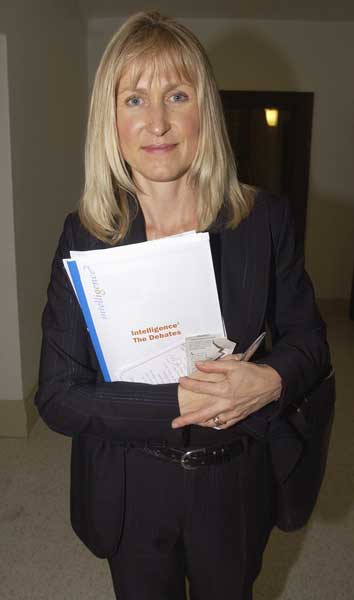Passed/Failed: An education in the life of Fiona Millar, journalist, campaigner for state schools and former aide to Cherie Blair
'I underachieved at school'

Fiona Millar, 52, is the journalist, broadcaster and former special adviser at Number 10. A parent and governor, she recently started her campaigning website www.thetruthaboutourschools.com. She is the partner of Alastair Campbell and author of The Secret World of the Working Mother.
In the reception class at Robinsfield Infants in St John's Wood, north London, they had little beds and you had a sleep in the afternoon. It was a very good school and I was very happy. I have only one bad memory: falling off a piece of very high gym equipment.
At seven, I went to Barrow Hill Juniors, and for some reason I went straight into the second year and so was always a year ahead of my age group. I do marvel at how different it was from my own children's school; it was quite boring with a lot of rote learning. The only change from sitting in rows was a bit of sport and country dancing.
I have no memory at all of taking the 11-plus exam. What I remember is that the interview for Camden School for Girls was highly influential. Camden was then a grammar school (now it's a comprehensive) educating a lot of daughters of high-profile figures like politicians and commentators. It was very progressive and had a strong ethos that girls were equal to boys.
The teaching was mostly good but I don't remember any real pressure about exams and there was no sense that the school was being judged externally: none of those league tables. I think that a lot of girls, including me, were allowed to underachieve in a way that wouldn't be allowed now. In some ways it was a fantastic education for education's sake, rather than to pass exams, but I don't think I did as well as I could have done because I was too busy having a social life. I was incredibly happy there but became very conscious of the division between grammar and secondary modern at that time and think this has influenced the issues on which I campaign now.
I got nine O-levels and three rather mixed A-levels: I got history and Latin and then re-took French. I applied to universities outside London to do – oddly enough – French. I went to look at Liverpool but as soon as I got off the train I knew I was a London person.
I then decided to go to the States but before I went my mother made me fill in a UCAS form for the following academic year. By the end of my year in America I decided that post-hippie life in California was extremely boring and that I wanted to go to university in London. I got an offer from UCL to read economics and economic history.
I loved the course. It was very stimulating and I worked pretty hard (from quite a low base) and got a 2.1. I did more history than economics, which I found difficult but subsequently have found it very useful for things like understanding the credit crunch. We were a very small group with three tutors and it was almost one-to-one tuition.
I didn't really have a university life; I just wanted to get a degree. I lived at home for my last two years and stayed friends with people I already knew in London who were now at art or medical schools. I was always active in the local Labour party, not in student politics. Alastair [Campbell] and I joke about the differences in our education. He thinks I am a sad, North London liberal progressive who had a wasted, drug-hazed north London youth, while he was following Burnley FC around with real people in the north of England.
Subscribe to Independent Premium to bookmark this article
Want to bookmark your favourite articles and stories to read or reference later? Start your Independent Premium subscription today.

Join our commenting forum
Join thought-provoking conversations, follow other Independent readers and see their replies